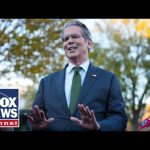Protests and chaos erupted at UC Berkeley recently as a conservative event hosted by Turning Point USA was targeted by violent demonstrations. Things took a turn for the worse when flares were ignited, blocking access to the campus. The situation was serious enough that it has prompted an investigation by the Department of Justice, along with assistance from the Joint Terrorism Task Force and the FBI. This incident raises troubling questions about the safety and security of conservative speakers on college campuses, an issue that has persisted for years.
The chaos occurred just as comedian Rob Schneider was set to take the stage before a sold-out audience. However, due to the violent protests, many attendees found themselves unable to enter the event. Critics pointed out that police presence seemed insufficient to manage the crowd and maintain order, leading to confrontations between attendees and demonstrators. The lack of a secure environment for free speech is a growing concern, especially with reports of outside agitators, like members of the controversial group Antifa, being involved in the protests.
Antifa has increasingly been viewed as a significant threat to free speech. Many have argued that this group engages in tactics designed to instigate violence when conservative figures appear on campus. In light of the unrest at Berkeley, there is a renewed urgency for measures to protect free speech and the rights of individuals to assemble peacefully. The university administration stated their intent to cooperate fully with the federal investigation and investigate the actions of these outside influencers, emphasizing their commitment to safeguarding the rights of everyone at their institution.
This incident is reminiscent of patterns seen across various college campuses, where conservative speech often faces hostility. The reluctance of universities to provide adequate security for controversial speakers raises serious questions about their commitment to upholding the values of free expression. This situation has sparked debate about whether universities should bear more responsibility for ensuring that all voices, regardless of political affiliation, are heard without fear of violence or intimidation.
In the face of these challenges, it remains crucial to protect the rights that underpin our democratic society. The ongoing threats to free speech and the need for a robust defense against mob tactics are issues that must be confronted head-on. If those advocating for conservative views are silenced on college campuses, it poses a risk not only to those individuals but to the broader concept of open dialogue that is essential in any healthy society. As investigations reveal the deep-rooted issues contributing to this climate of fear and hostility, it becomes increasingly clear that a commitment to free speech—not only in theory but also in practice—is paramount for the future of academic discourse.




